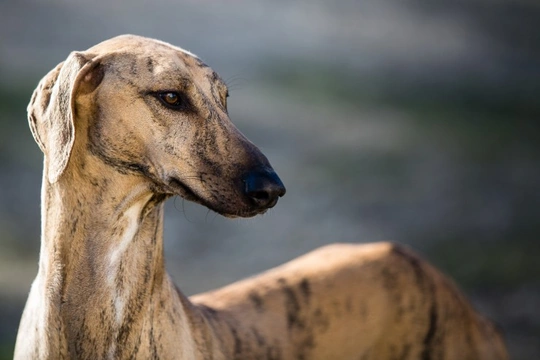
Greyhounds and Their Sensitivity to Drugs
Greyhounds have delighted people in many ways over the centuries, whether they were used for hunting, racing or just being companion dogs. The breed can be traced back to the times of Ancient Egypt and boasts a long and illustrious ancestry. Today, many people choose to offer ex-racing Greyhounds a home so they can live out their lives in a happy, loving home environment. However, treating any sort of injury or health issues often seen in the breed, can often prove challenging because a Greyhound’s makeup is quite different from other dogs. As such vets have to take extra care when treating these lovely dogs.
A Sensitivity to Anaesthetics
Greyhounds are known to have a sensitivity to anaesthetics which is due to the fact they don't carry much body fat. On top of this, their livers do not process drugs very efficiently or quickly enough which results in the medication remaining in their systems for longer than they should. This in turn means the breed takes that much longer to recover from having been given certain drugs which includes any sort of sedative. In fact, Greyhounds should not be given any sort of sleep inducing drug because of this.
If you are thinking about adopting a Greyhound, it's best to discuss these issues with the vet because it can be quite worrying should your pet ever need to undergo any sort of invasive or other surgery. Vets would have to use another way to keep your dog asleep during their treatment and would generally use a mixture of Ketamine and Diazepam administered intravenously. Your pet would be very closely monitored throughout the surgery and aftercare needs to be quite intense too because the breed is so sensitive to many other drugs and medications needed during the recovery period. It is perfectly normal for vets to want to keep Greyhounds at the surgery that much longer for this reason, so if you find they will not allow you to take your dog home as soon as you hoped they would this should not be any real cause for concern.
Recovery Periods Are Much Longer than in Other Breeds
It's known that Greyhounds as well as many other sighthounds have a real sensitivity to specific drugs which includes thiopental and that recovery time when a drug called propofol is used during any sort of surgery is longer than it is in other breeds of dog. With this said, vets tend to keep greyhounds in a clinic after they have undergone any sort of treatment or more invasive surgery to make sure they are fully recovered before they are allowed to go home.
Greyhound Sensitivity to Flea Products
The breed is also known to be ultra-sensitive to many flea and tick products. An example being flea collars which should never be used on a Greyhound. There are specific flea control products safe to use on them which you should ask your vet to prescribe although products like Frontline are known to be safe to use on Greyhounds. It would be mistake to buy any sort of cheap flea or tick treatment that’s not produced by a well-known pet company because you never know what might be used in them which could make a Greyhound very ill.
The Safest Products for Intestinal Worms
When it comes to products that control and get rid of intestinal worms, you must not use any medication that is not specifically safe to use on Greyhounds because it could do more harm than good. It is far safer to get your vet to prescribe a broad spectrum treatment which treats heartworm, roundworm, whipworm and hookworm as well as tapeworm. Again, it’s really important to use well-known brands when you treat a Greyhound for intestinal worms and it is best to check with your vet before you give your dog anything if you have any doubts about a product. It’s the old adage of better safe than sorry when giving a Greyhound any sort of over-the-counter intestinal parasite treatments.
Conclusion
With Greyhounds having such a sensitivity to specific drugs and anaesthetics, it can prove very challenging when vets have to treat them for any kind of injury or disease. Vets have to carefully monitor these dogs to make sure their systems are coping with the medication as it passes through their more delicate systems. However, it's after a Greyhound has received any type of surgery that their condition needs to be carefully monitored too because their recovery time tends to be longer than other breeds and the reason for this is that their systems have more trouble metabolising so many things. When it comes to treating Greyhounds for fleas and internal parasites, owners have to be very careful which products they use and should ideally discuss things with the vet before giving their dogs any sort of over-the-counter treatment just to be sure.



